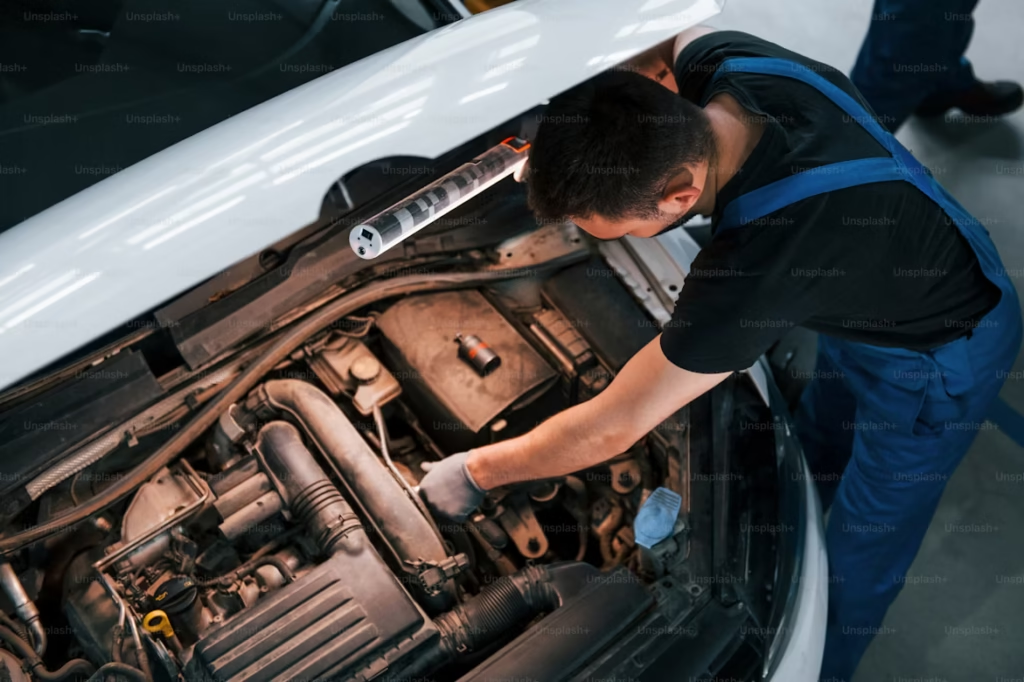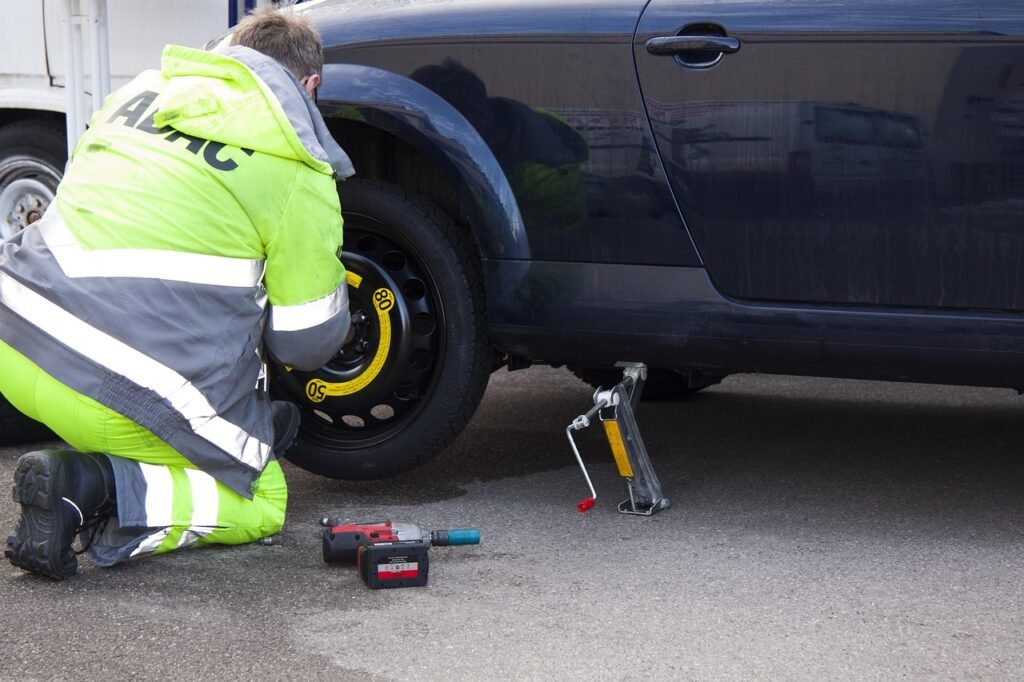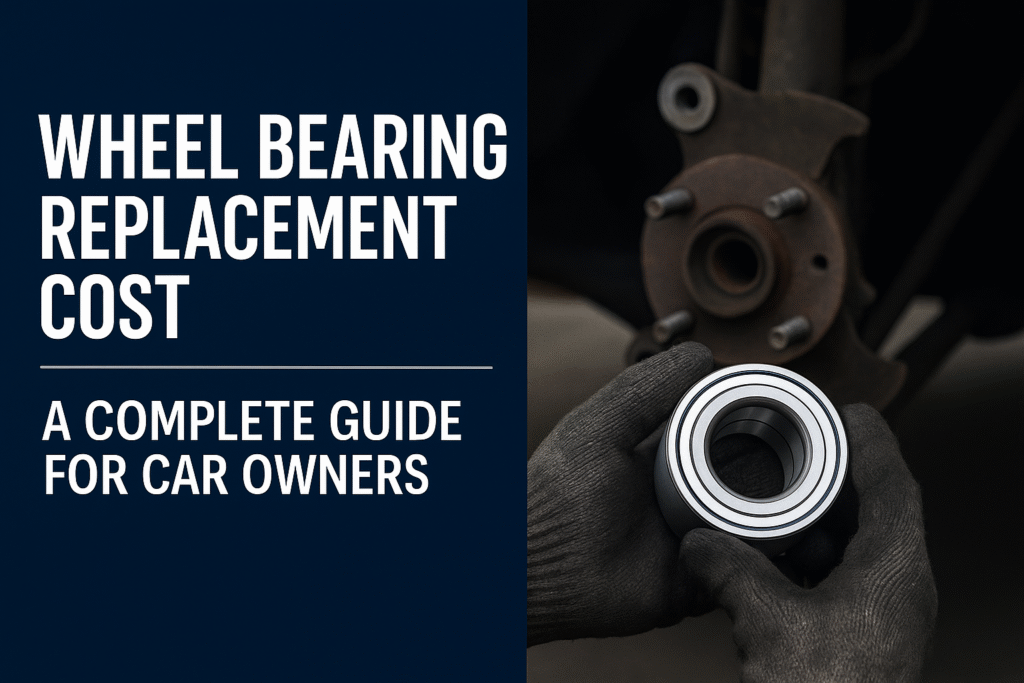Your vehicle’s brake system is one of its most critical safety components, ensuring you can stop when necessary to avoid accidents and maintain control. One vital part of the braking system is the master cylinder, which plays a significant role in generating hydraulic pressure that allows your vehicle to stop. If something goes wrong with the master cylinder, it can have serious consequences for your vehicle’s braking performance. In this blog post, we will explore the symptoms of a bad master cylinder, how to diagnose the issue, and what you can do to prevent brake failure.
What is a Master Cylinder? Understanding Its Role in the Brake System
Before diving into the symptoms and diagnostic techniques, it’s essential to understand what a master cylinder is and why it’s so important.
The master cylinder is a central component of your vehicle’s brake system. When you press down on the brake pedal, it activates the master cylinder, which generates hydraulic pressure. This pressure travels through the brake lines and reaches the brakes at each wheel, causing them to engage and slow down the vehicle. Without a functioning master cylinder, your brakes simply won’t work properly.
A master cylinder typically consists of several key components:
- The reservoir that holds the brake fluid,
- The piston which helps generate hydraulic pressure,
- The seals that prevent fluid leakage,
- The cylinder body which houses all of these parts.
In short, without a functioning master cylinder, your entire brake system will fail to operate as it should, compromising your safety on the road.
Top Warning Signs of a Failing Master Cylinder
Now that we know what a master cylinder does, let’s explore the common symptoms that indicate it might be failing.
1. Soft or Spongy Brake Pedal
One of the most common signs of a bad master cylinder is a soft or spongy brake pedal. When you press the brake pedal, it may sink further than normal, or feel like it’s not offering enough resistance. This can be due to air or moisture entering the brake lines, a sign that the master cylinder seals are compromised and hydraulic pressure is not being properly maintained.
2. Low or Leaking Brake Fluid
Brake fluid is essential for the master cylinder to generate the necessary pressure for braking. If you notice that your brake fluid is low or see fluid leaking around the master cylinder, it’s a sure sign of trouble. Leaks can cause air or moisture to enter the brake lines, impacting performance.
3. Unusual Brake Pedal Behavior
If your brake pedal feels different, such as pulling to one side or being harder than usual, it might indicate that there is an issue with the master cylinder. Uneven pressure distribution can cause the brakes to engage improperly, leading to potential brake imbalance.
4. Brakes are Unresponsive or Slow to Engage
A failing master cylinder can lead to delayed braking responses or unresponsiveness when you press the brake pedal. If the brakes feel sluggish or take longer than usual to engage, it’s crucial to investigate the master cylinder as it might not be generating enough pressure.
5. Contaminated Brake Fluid
If your brake fluid is dark, murky, or contains visible debris, it could indicate that the master cylinder is deteriorating. Contaminated fluid can damage other components of the brake system and reduce overall braking effectiveness.
Diagnostic Techniques: How to Identify Master Cylinder Problems
If you’re experiencing any of the symptoms above, there are several ways to confirm whether the master cylinder is the culprit.
1. Visual Inspection
A quick visual inspection can help you identify potential issues. Check for brake fluid leaks around the master cylinder and inspect the brake fluid reservoir. Look for cracks, discoloration, or any signs of damage that could be affecting the master cylinder’s performance.
2. Brake Pedal Test
To diagnose a bad master cylinder, press the brake pedal and note how it feels. If the pedal feels soft or sinks to the floor, it may indicate an internal leak or a problem with the seals. If the pedal feels hard or unresponsive, it could be due to a blockage or malfunction in the master cylinder.
3. Fluid Check
Check the brake fluid levels regularly to ensure they are within the optimal range. If the fluid is low or contaminated, this could be a sign of master cylinder issues. If you’re unsure whether the fluid is in good condition, a mechanic can perform a more thorough inspection.
4. Brake System Bleeding
If you suspect air or moisture in the brake lines, performing a brake system bleed might reveal whether the master cylinder is at fault. This process involves releasing trapped air from the brake system, which can help restore proper hydraulic pressure if the master cylinder is working correctly.
5. Professional Diagnostic Tools
If these basic tests don’t reveal the issue or you’re not comfortable performing them yourself, it’s best to take your vehicle to a professional mechanic. They can use specialized diagnostic tools to check the master cylinder’s performance and pinpoint the problem.
Potential Consequences of Ignoring Master Cylinder Issues
Ignoring master cylinder problems can have dangerous consequences.
1. Decreased Braking Power and Safety Risks
A faulty master cylinder will significantly impact your ability to stop the vehicle, increasing the risk of accidents. Decreased braking power is one of the most dangerous consequences of ignoring master cylinder issues.
2. Further Damage to the Brake System
If left unchecked, a failing master cylinder can cause damage to other parts of the brake system, such as the brake lines or calipers. This can result in costly repairs and more extensive damage.
3. Increased Repair Costs
The longer you wait to address a failing master cylinder, the more expensive the repairs can become. Addressing the issue early can help minimize the cost and prevent further complications.
4. Legal and Insurance Consequences
If you experience a brake failure due to neglecting master cylinder issues and are involved in an accident, you could face legal consequences and difficulties with insurance claims. Maintaining your brake system is essential to protect yourself and others on the road.
Repair and Replacement Recommendations for a Faulty Master Cylinder
If your master cylinder is failing, it may need to be repaired or replaced. Here’s how you can address the issue:
1. When to Replace the Master Cylinder
If the master cylinder is leaking or severely damaged, it may be more cost-effective to replace it rather than attempting repairs. If the cylinder’s internal components are worn out or damaged beyond repair, replacement is the best option.
2. Steps for Replacing the Master Cylinder
Replacing the master cylinder is a complex process that involves draining the brake fluid, disconnecting the brake lines, and removing the old master cylinder. It’s often best left to a professional mechanic, especially if you’re not experienced with brake system repairs.
3. Cost Estimates
Replacing a master cylinder can cost between $300 and $600, depending on your vehicle’s make and model, as well as labor costs. The price may vary based on whether the repair is done at a dealership or by an independent mechanic.
4. DIY vs Professional Repair
While it’s possible to replace a master cylinder on your own, this task is best left to experienced DIYers or professionals. If you’re unsure or uncomfortable with brake system repairs, it’s wise to seek professional help.
Prevention and Maintenance Tips to Extend the Life of Your Master Cylinder
Prevention is always better than cure. Here are some tips to extend the life of your master cylinder:
1. Regular Brake Fluid Checks
Check your brake fluid levels regularly and ensure they are topped up when necessary. If the fluid appears dirty or contaminated, have it flushed and replaced to prevent damage to the master cylinder.
2. Brake System Inspections
Schedule regular brake system inspections with a qualified mechanic. They can check the condition of the master cylinder, fluid levels, and other critical brake components.
3. Avoiding Contamination
Keep contaminants such as dirt and moisture away from your brake fluid. These can cause damage to the master cylinder and other brake components. Always use the recommended brake fluid type for your vehicle.
4. Driving Habits to Protect Your Brakes
Adopting smoother driving habits, such as avoiding harsh braking and rapid acceleration, can help reduce wear and tear on your brake system and extend the life of the master cylinder.
Conclusion: Act Fast for Your Safety
Your master cylinder is crucial to your vehicle’s braking performance. Recognizing the symptoms of a bad master cylinder early on like a soft pedal, low brake fluid, or unresponsive brakes can save you time, money, and potentially even your life. If you notice any of these warning signs, it’s crucial to address the issue promptly, either by performing basic diagnostics or consulting a professional mechanic.
Don’t take chances with your safety ensure your brake system is in top condition by staying on top of regular maintenance and addressing any issues as soon as they arise.



